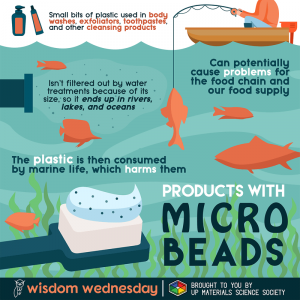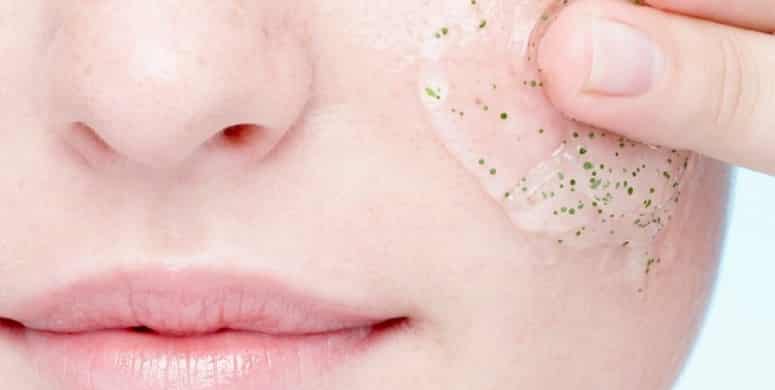 In December of 2015, the Microbead-Free Waters Act (the Act) was passed as a way to prevent more plastic from going into the Great Lakes. Microbeads are those little scrubby plastic pieces in many cosmetics, including soaps, face wash, and even toothpaste. They are small in size, usually less than a millimeter, and therefore can pass right through many water treatment facilities and straight into our creeks, rivers, and ultimately Lake Erie. In one 4.2 ounce container of a leading facial cleanser, there are a whopping 356,000 microbeads!
In December of 2015, the Microbead-Free Waters Act (the Act) was passed as a way to prevent more plastic from going into the Great Lakes. Microbeads are those little scrubby plastic pieces in many cosmetics, including soaps, face wash, and even toothpaste. They are small in size, usually less than a millimeter, and therefore can pass right through many water treatment facilities and straight into our creeks, rivers, and ultimately Lake Erie. In one 4.2 ounce container of a leading facial cleanser, there are a whopping 356,000 microbeads!
A recent study was done in Lakes Superior, Huron and Erie. The team surveyed 21 sites, 20 of which contained plastic. Lake Erie alone had eight sampling sites where just two sites contained 85% of all the plastic found in the entire study. These two sites were down river from Erie, PA; Cleveland, OH; and Detroit, MI. Lake Erie is the most populated of the Great Lakes, so it is not surprising that we have this amount of pollution, but Lake Erie is also known for its walleye, who can mistake these tiny pieces of plastic for food.
Plastic serves as a magnet for other pollutants in the environment like DDT, PCBs, flame-retardants, and other industrial chemicals. They can absorb up to 1,000,000 times more toxins than the surrounding water! The toxins from the beads can also accumulate in fish and wildlife, even potentially reaching humans who eat wildlife around the Great Lakes region.
The Act has a two-part timeline, one date for halting the production of these items, and another date for stopping the sale of these items. We just passed our first milestone on July 1, 2017! That means companies can no longer produce and manufacture scrubs or other products with microbeads in them without facing a penalty. However, you can still buy these items in stores until July 1, 2018. That allows time for stores to go through their inventory. Until then, we encourage you to make the switch to more environmentally healthy cosmetics. There are lots of scrubs and soaps on the market that use sugar, coffee, chocolate beans, apricot husks, walnut shells, and more as the abrasive ingredient. You can even make your own! Coffee or chocolate do seem more appealing than plastic, don’t they?
If you can’t see the microbeads in your products at home, check the ingredients list for “polyethylene,” which is the most common name for the plastic. These products are common and popular, so it’s likely you have at least one of them already in your home. You can stop these microbeads from entering Lake Erie by simply tightening the lid and putting the product in the trash. That may feel counterintuitive, but remember emptying them down the drain and recycling the bottle still introduces the plastic to the water because they can bypass water treatment facility filters. Plastic in a landfill will be contained, sealed off from our water bodies.

